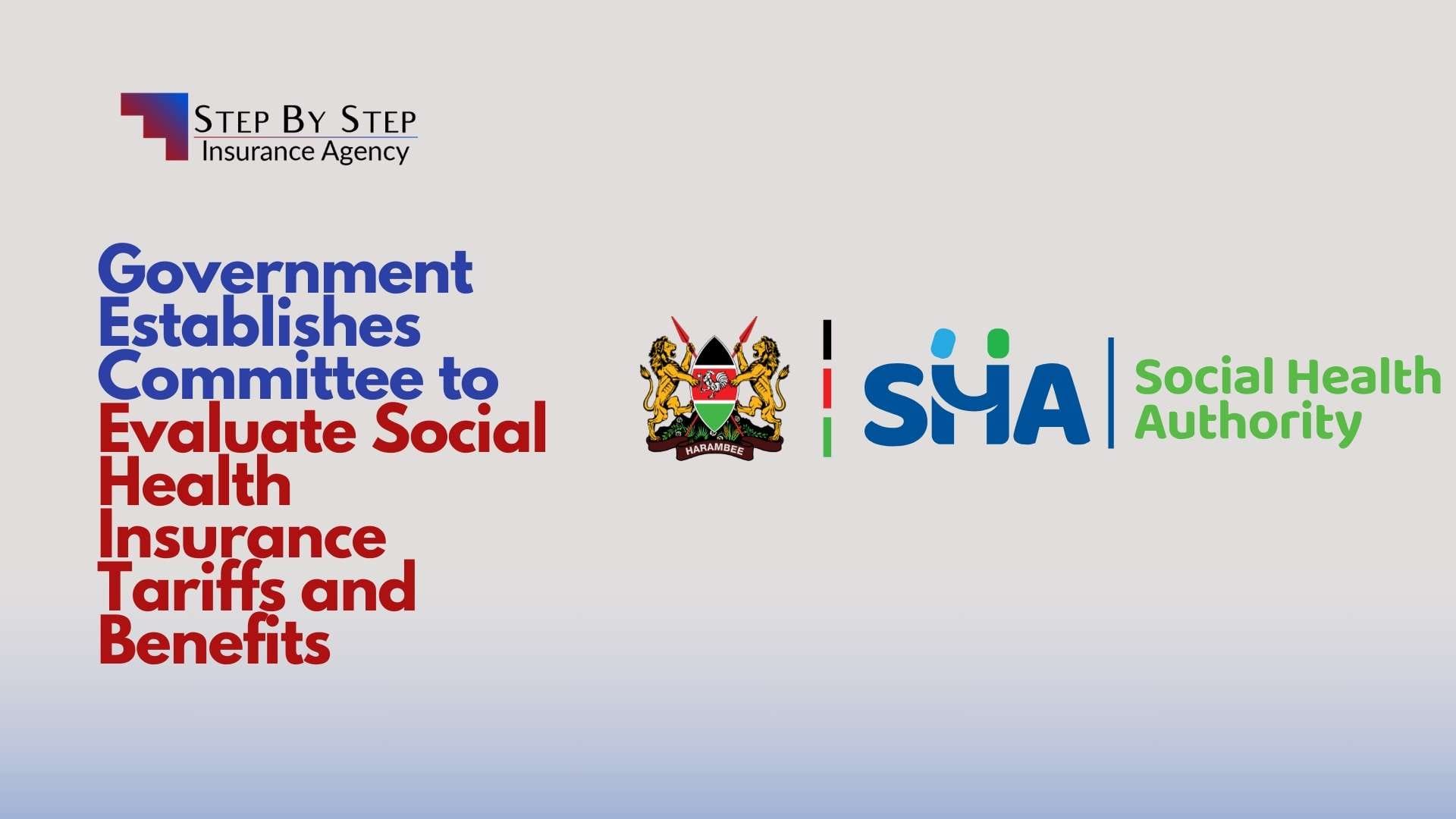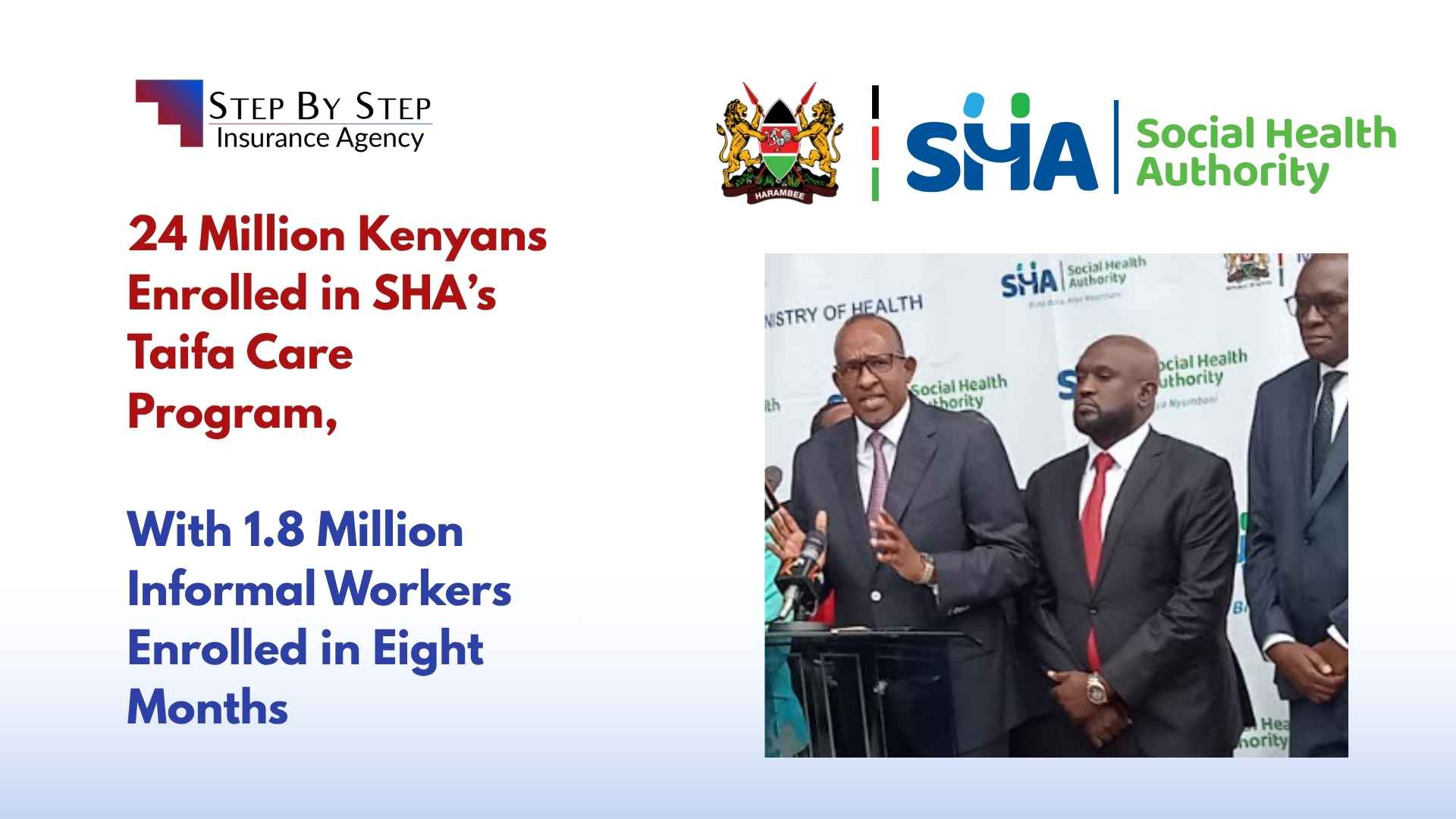Government Establishes Committee to Evaluate Social Health Insurance Tariffs and Benefits
In a significant move towards enhancing healthcare access in Kenya, the government has announced the formation of a committee to review tariffs and benefits under the Social Health Insurance Regulations. This initiative is crucial as it seeks to address the growing concerns regarding healthcare affordability and accessibility for all Kenyans.
The Social Health Insurance Fund (SHIF) aims to provide comprehensive medical coverage to every resident, but as healthcare costs rise, it becomes imperative to reassess the existing tariff structures and benefits offered.
This blog post will delve into the details of this initiative, its importance, potential challenges, and expected outcomes.
Formation of the Review Committee
The newly formed committee will play a pivotal role in assessing the current tariffs and benefits associated with SHIF. Its primary purpose is to ensure that the insurance framework remains relevant and responsive to the needs of the Kenyan population.
Purpose of the Committee
The committee’s main objectives include:
- Evaluating Current Tariffs: Analyzing whether existing tariffs accurately reflect healthcare service costs.
- Assessing Benefits: Reviewing the benefits package to ensure it meets the needs of various demographics, particularly vulnerable populations.
- Recommendations for Adjustments: Proposing necessary changes to improve coverage and affordability.
Composition of the Committee
The committee will consist of a diverse group of stakeholders, including:
- Government Officials: Representatives from the Ministry of Health and other relevant departments.
- Health Experts: Professionals with experience in health economics and policy.
- Community Representatives: Individuals from various communities to ensure that local perspectives are considered.
Timeline for the Review Process
The review process is expected to unfold over several months, with key milestones including:
- Initial assessments and data collection.
- Public consultations to gather feedback from stakeholders.
- Final recommendations presented to the government for implementation.
Importance of Reviewing Tariffs and Benefits
1. Addressing Rising Healthcare Costs
One of the primary reasons for reviewing tariffs is to address the rising costs associated with healthcare delivery. As medical expenses continue to escalate, it is essential that SHIF tariffs are adjusted accordingly. Current tariffs may not adequately cover the costs incurred by healthcare providers, leading to potential service shortages or reduced quality of care.For instance, a study by Cytonn Investments highlighted that many healthcare providers struggle with reimbursement rates that do not align with operational costs, thus impacting service delivery. By aligning tariffs with actual costs, the government can ensure that healthcare providers are adequately compensated, which in turn enhances service availability and quality.
2. Enhancing Coverage for Vulnerable Populations
Another critical aspect of this review is enhancing coverage for vulnerable populations. Many low-income families face significant barriers in accessing healthcare due to high out-of-pocket expenses. By expanding the benefits package under SHIF, the government can ensure that essential health services are accessible to all, regardless of their financial status.The review committee will consider incorporating additional services such as mental health support, preventive care, and chronic disease management into the benefits package. These services are vital for improving overall health outcomes in underserved communities.
3. Aligning with Universal Health Coverage Goals
Kenya has made commitments towards achieving Universal Health Coverage (UHC) as part of its Vision 2030 development agenda. The review of tariffs and benefits under SHIF is a critical step in fulfilling this commitment. By ensuring that all citizens have access to affordable healthcare services, Kenya can make significant progress towards UHC.According to recent reports from the Ministry of Health, achieving UHC requires a robust health financing system that includes effective social health insurance mechanisms. The review process aims to strengthen SHIF’s role in this system by making it more inclusive and responsive to community needs.
Potential Challenges in the Review Process
While the review process holds great promise, several challenges may arise:
a. Resistance from Stakeholders
There may be resistance from various stakeholders, including healthcare providers who may be concerned about changes in reimbursement rates or coverage limits. Engaging these stakeholders early in the process will be crucial for addressing their concerns and fostering collaboration.
b. Balancing Cost Management with Comprehensive Coverage
Finding a balance between managing costs and providing comprehensive coverage can be challenging. The committee must carefully evaluate which services should be prioritized while ensuring that funding remains sustainable.
c. Addressing Disparities in Healthcare Access
Kenya’s diverse geography presents unique challenges regarding healthcare access. Rural areas often face greater barriers than urban centers. The review must consider these disparities and propose solutions that ensure equitable access for all Kenyans.
Expected Outcomes of the Review
The review process is expected to yield several positive outcomes:
i. Improved Tariff Structures
One anticipated outcome is improved tariff structures that reflect actual healthcare costs while remaining affordable for consumers. This adjustment will enhance financial sustainability for both providers and patients.
ii. Expanded Benefits Package
The committee’s recommendations may lead to an expanded benefits package that includes essential services currently lacking under SHIF. This expansion will help address gaps in coverage and improve overall health outcomes.
iii. Strengthened Regulatory Framework
Finally, strengthening the regulatory framework governing SHIF will enhance compliance and accountability among all stakeholders involved in delivering health services. This improvement is crucial for building public trust in the health insurance system.
Conclusion
The government’s initiative to form a committee for reviewing tariffs and benefits under the Social Health Insurance Regulations represents a significant step towards enhancing healthcare access and affordability in Kenya.
By addressing rising costs, expanding coverage for vulnerable populations, and aligning with UHC goals, this review has the potential to transform Kenya’s healthcare landscape. It is essential for stakeholders at all levels to engage actively in this process to ensure that the final outcomes meet the needs of all Kenyans effectively.
Frequently Asked Questions (FAQs)
- What is the purpose of reviewing tariffs under SHIF?
- The review aims to ensure that tariffs accurately reflect healthcare service costs while promoting accessibility for all citizens.
- How will changes in tariffs affect my health insurance contributions?
- Adjustments may lead to changes in contribution rates; however, they aim to enhance overall affordability and service availability.
- When can we expect new benefits to be implemented?
- The timeline for implementing new benefits will depend on the committee’s recommendations and subsequent government approvals.
- How can I participate in providing feedback during this review process?
- Stakeholders can participate through public consultations organized by the committee or by submitting feedback directly through designated channels announced by the government.





